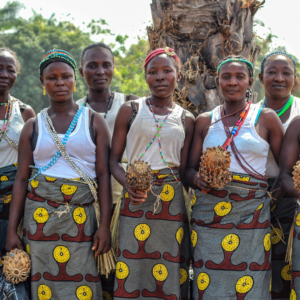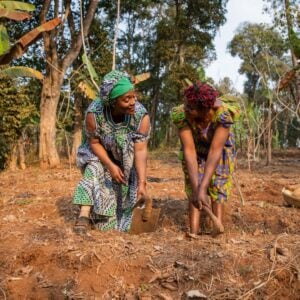In Namara District, Tailevu, Fiji, a transformative two-day workshop has launched a Pilot Initiative aimed at strengthening inclusive, climate-smart value-added production across the region. Led by the United Nations Development Programme (UNDP) through its Inclusive Growth Unit, the initiative targets 60 women market vendors and farmers from the villages of Nakalawaca, Naikawaga, Tubalevu, Nakorolevu, and Naisausau. It responds to community requests for training in organic farming, food safety, and value addition, particularly for root crops such as cassava, dalo, kumala, and breadfruit.
The initiative originated from a grassroots request by women vendors from Namara who sought assistance in adding value to their produce. In November 2024, participants attended hands-on training at Koronivia Research Station to learn processing techniques for breadfruit and plantain, transforming raw produce into flour and chips. This training sparked immediate interest in forming village-based cooperatives and small-scale processing facilities. UNDP followed up in August 2025 with a cooperative awareness session in partnership with the Department of Co-operatives, laying the foundation for enterprise, ownership, and long-term sustainability.
Building on these efforts, a pilot training on the “Farm to Table Before Export” concept was held in September 2025, engaging 65 participants, including women, youth, and men. Led by the Ministry of Health, Ministry of Agriculture, and Ministry of Trade, Co-operatives, SMEs and Communications, the training covered nutrition, value addition, market linkages, organic farming, food safety protocols, and branding strategies. Participants gained practical tools to shift their communities from subsistence farming to sustainable, income-generating practices. Youth emerged as future leaders, while women gained confidence as entrepreneurs and community changemakers.
The pilot has generated tangible impact, with communities understanding the full value chain from production to market. Interest in cooperative formation is increasing, and women and youth are now equipped to lead income-generating initiatives. The model is positioned for replication across other provinces in Fiji, creating a blueprint for inclusive, community-led development. Follow-up training scheduled for October 2025 will focus on breadfruit grafting, compost setup, facility planning, health licensing, food safety manuals, recipe development, and governance support for cooperatives.
The initiative’s success is rooted in multi-stakeholder collaboration, including the Ministry of Agriculture, Ministry of Health and Medical Services, Department of Co-operatives, and Fiji National University, with UNDP providing logistical support to ensure equitable access for participants from remote areas. Over the next three months, additional training rounds will further develop cooperative structures, advanced value addition techniques, and pilot small-scale processing facilities. By the end of the pilot, participants are expected to diversify income streams, enhance food safety and nutrition, reduce food wastage, strengthen market linkages, and contribute to resilient, community-led economic growth.
This pilot project demonstrates that community-led action can drive meaningful change. With the support of Regional DFAT Funds and in partnership with the Government of Fiji, the Namara initiative showcases how inclusive, responsive, and locally rooted development can empower women and youth while fostering sustainable economic transformation.






